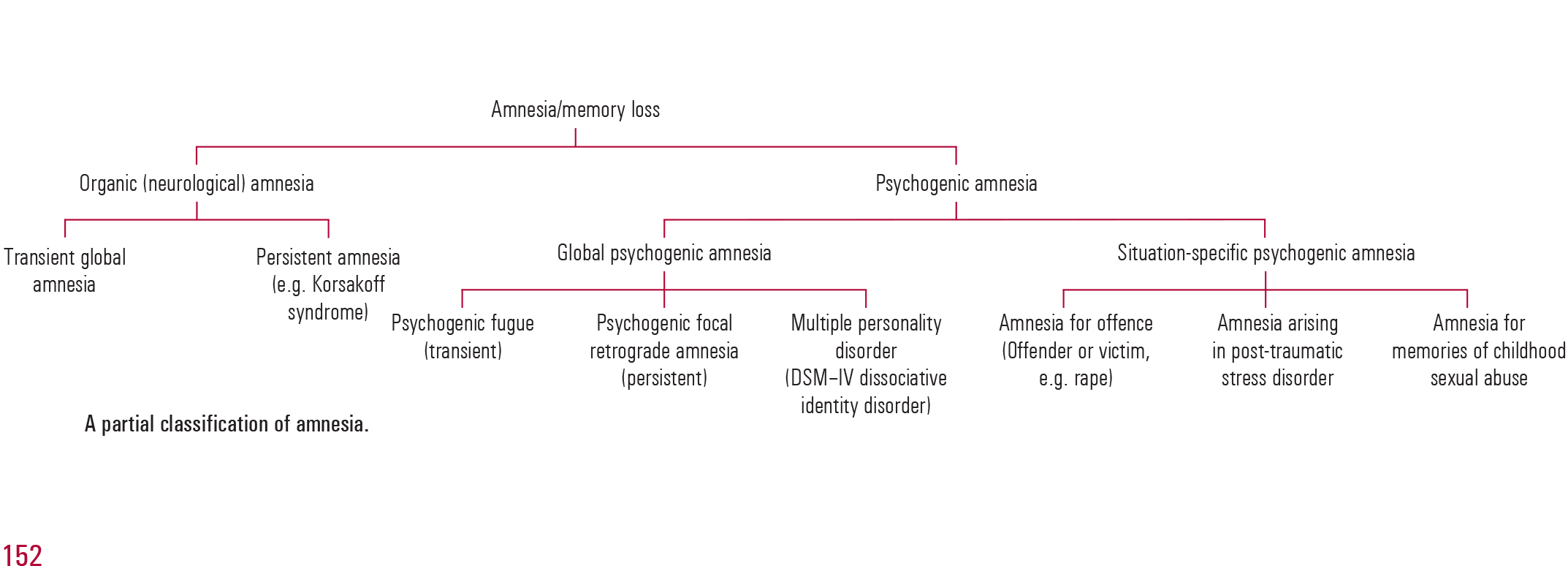

Amnesia caused by damage to the hippocampus. These reasons can be briefly explained as follows: When we look at what are the causes of amnesia, there are many reasons for this ailment. The person forgets the traumatic event and personal information. Dissociative/Psychogenic Amnesia In this type of amnesia, deterioration in the mental health of the person occurs. The reason for this is that the regions that support memory are developing. Infantile Amnesia In this type of amnesia, the person cannot remember memories from 3-5 years ago. Post Traumatic Amnesia In the type of amnesia that occurs in the traumatic event, the forgetting style of the person can be either retrograde, anterograde or both. However, since the memory does not record the day, there is a situation of constantly asking the same questions. He remembers the past, remembers his frequent transactions, recognizes his relatives. However, since future records and memories are not recorded during that time, the patient does not remember a day after he recovers. Transient Global Amnesia In this type of amnesia, the patient usually recovers after one day. Anterograde Amnesia It is a type of amnesia that affects a person’s ability to record and remember future information. For example, if this amnesia occurred after an accident, the person forgets about the accident and the days before it. Retrograde Amnesia In this type of amnesia, the person forgets not the distant past, but the recent past after being diagnosed with amnesia. What are the Types of Amnesia, we have listed them for you below: There are many known types of this disease. What Are the Types of Amnesia?Īmnesia, also known as amnesic syndrome, is a condition in which a person forgets his or her distant past and recent past, and does not record new information and memories about the future. In addition, it cannot record and store new memories and information. In this amnesia, the person hardly remembers the past or does not remember at all. Contrary to what is known, it does not affect the body health of the person. Which Department Should I Go to for Amnesia?Īmnesia is a disease that occurs in the brain and causes memory problems. #Treatments for amnesia professional
Overcoming addiction needs family support, professional counselling and a strong willpower. Infections can be treated with respective antimicrobials. Age-related memory loss and certain conditions like Alzheimer’s disease cannot be cured completely. In case of nutritional deficiencies, supplementation can easily correct memory loss. The treatment of memory loss depends on the cause of the condition. Brain imaging techniques like CT scan and MRI.Blood tests to detect specific infections or nutrient levels.Other tests that will help in identifying reversible causes of memory loss include: Your answers to these questions will determine your thinking ability and memory. To diagnose memory loss, the doctor will ask you a few questions. Nutrient deficiency causing Korsakoff syndrome due to thiamine deficiency.Memory loss may appear as a symptom of dementia:.Memory loss due to mental disorders like.Hypoxia (reduced oxygen supply to the brain).Damage to any part of the brain, which may be due to:.

Causes of non-age related memory loss are: Some amount of forgetfulness is a natural phenomenon associated with ageing. Difficulty in recollecting sequence of steps in a complex task.Forgetfulness of old or very recent events.

The most common signs and symptoms associated with memory loss are: When your memory loss interferes with your reasoning, judgement, language, and other thinking skills, it is termed as dementia and needs a detailed investigation by a doctor. Forgetting where you last kept your keys or umbrella or watch is not termed as memory loss as is usually thought. Age-related memory loss is common and is usually not serious. An amnesic person may forget new upcoming events or forget some memories of the past, or sometimes both. Memory loss, also known as amnesia, is an unusual form of forgetfulness.







 0 kommentar(er)
0 kommentar(er)
